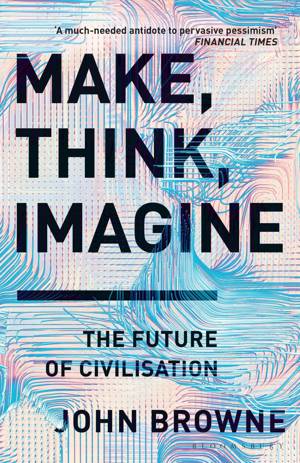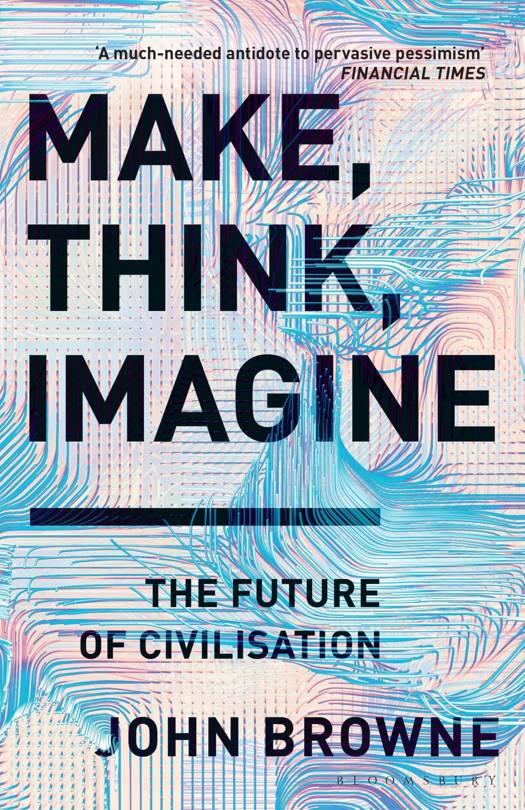
- Afhalen na 1 uur in een winkel met voorraad
- Gratis thuislevering in België vanaf € 30
- Ruim aanbod met 7 miljoen producten
- Afhalen na 1 uur in een winkel met voorraad
- Gratis thuislevering in België vanaf € 30
- Ruim aanbod met 7 miljoen producten
Zoeken
Omschrijving
LONGLISTED FOR THE FINANCIAL TIMES AND MCKINSEY BUSINESS BOOK OF THE YEAR AWARD 2019
__________________
'A much-needed antidote to pervasive pessimism' Financial Times
'An ode to the ways in which engineering has improved human civilisation' John Hennessy, Chairman, Alphabet
__________________
Today's unprecedented pace of change leaves many people wondering what new technologies are doing to our lives.
Has social media robbed us of our privacy and fed us with false information? Are robots going to take our jobs? Will better healthcare lead to an ageing population that cannot be cared for? And has our demand for energy driven the Earth's climate to the edge of catastrophe?
John Browne argues that we need not and must not put the brakes on technological advance. Civilisation is founded on engineering innovation; all progress stems from the human urge to make things and to shape the world around us, resulting in greater freedom, health and wealth for all.
Drawing on history, his own experiences and conversations with many of today's great innovators, he uncovers the basis for all progress and its consequences, both good and bad. He argues compellingly that the same spark that triggers each innovation can be used to counter its negative consequences.
Make, Think, Imagine provides an eloquent blueprint for how we can keep moving towards a brighter future.
__________________
'A much-needed antidote to pervasive pessimism' Financial Times
'An ode to the ways in which engineering has improved human civilisation' John Hennessy, Chairman, Alphabet
__________________
Today's unprecedented pace of change leaves many people wondering what new technologies are doing to our lives.
Has social media robbed us of our privacy and fed us with false information? Are robots going to take our jobs? Will better healthcare lead to an ageing population that cannot be cared for? And has our demand for energy driven the Earth's climate to the edge of catastrophe?
John Browne argues that we need not and must not put the brakes on technological advance. Civilisation is founded on engineering innovation; all progress stems from the human urge to make things and to shape the world around us, resulting in greater freedom, health and wealth for all.
Drawing on history, his own experiences and conversations with many of today's great innovators, he uncovers the basis for all progress and its consequences, both good and bad. He argues compellingly that the same spark that triggers each innovation can be used to counter its negative consequences.
Make, Think, Imagine provides an eloquent blueprint for how we can keep moving towards a brighter future.
Specificaties
Betrokkenen
- Auteur(s):
- Uitgeverij:
Inhoud
- Aantal bladzijden:
- 464
- Taal:
- Engels
Eigenschappen
- Productcode (EAN):
- 9781526605726
- Verschijningsdatum:
- 11/06/2020
- Uitvoering:
- Paperback
- Afmetingen:
- 130 mm x 197 mm
- Gewicht:
- 373 g

Alleen bij Standaard Boekhandel
+ 30 punten op je klantenkaart van Standaard Boekhandel
Beoordelingen
We publiceren alleen reviews die voldoen aan de voorwaarden voor reviews. Bekijk onze voorwaarden voor reviews.











